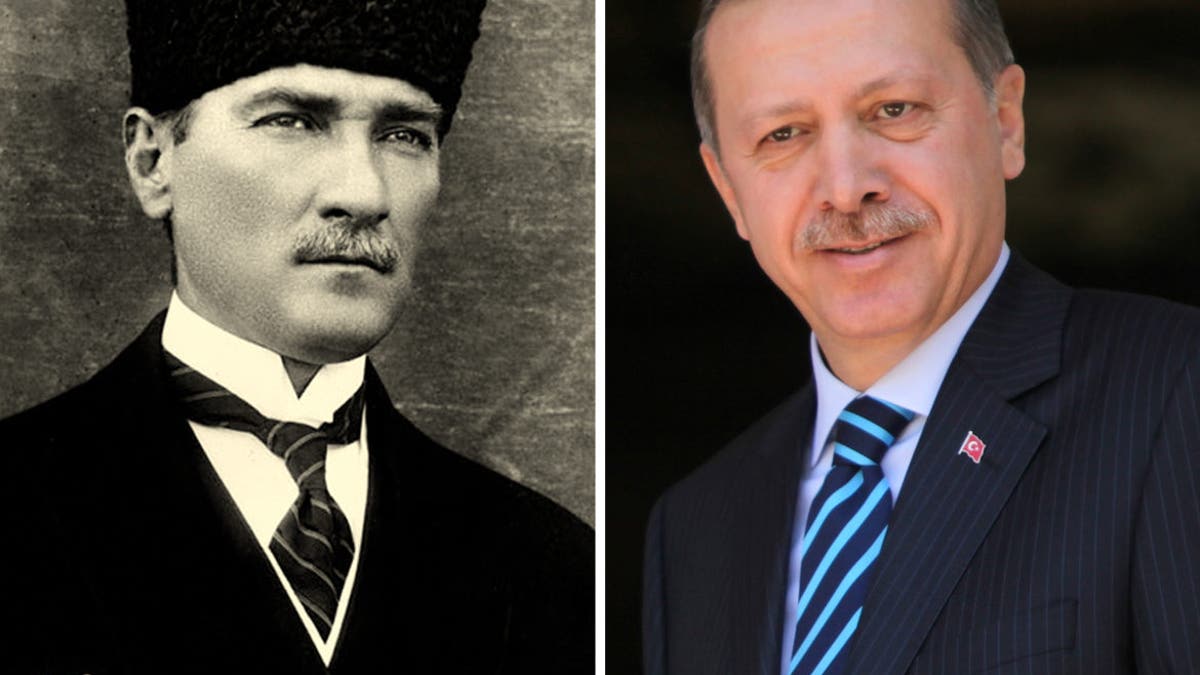
Turkish President Recep Tayyip Erdogan praised a shared democratic heritage between the U.S. and Turkey during a visit to the White House Tuesday.
"The relations between Turkey and the United States have been erected upon common democratic values and common interests," Erdogan said Tuesday in a joint-press conference with President Donald Trump.
But Erdogan's pursuit of increased, centralized power and support for Islam in public life begs the question how deeply he reveres those democratic values that are the legacy of Turkey's founding father, Mustafa Kemal Ataturk.
Modern Turkey as we know it was forged from the ashes of the Ottoman Empire following the First World War under the determined leadership of Mustafa Kemal Ataturk. After the Empire's defeat in the Great War, Ataturk defended present-day Turkey from partition amongst the Allied powers, successfully defeating them in the Turkish War of Independence.
Independence secured, Ataturk proceeded to abolish the Ottoman Empire and institute the Republic of Turkey. As president, he instituted a number of liberalizing religious and social reforms in an effort to create a modern nation-state.
In April Erdogan won a nationwide referendum dramatically increasing his power as president. It granted the president new powers over policy, the bureaucracy, and the court system -- each an institution left with a degree of independence under the republicans system established by Ataturk.
One of Ataturk's most important actions was the abolition of the Caliphate. Prior to its destruction, the physical Ottoman Empire effectively doubled as the spiritual Caliphate, with the Ottoman sultan serving also as the Caliph.
"The religion of Islam will be elevated if it will cease to be a political instrument, as had been the case in the past," said Ataturk in 1924 two days before the Caliphate's official abolition and roughly a month before Sharia courts in the country were abolished, too.
Ataturk made the secularism of the new Turkish republic a defining facet of the nation's governing ideology.
Now, just over 90 years later, Erdogan is bringing Islam back into Turkish public life.
Erdogan is a founding member of the Justice and Development Party (AKP), a self-styled moderate Islamist political party. In 2013, Erdogan ended a controversial ban on public servants' wearing headscarves. In 2014, Erdogan reintroduced religious public education programs to the country, turning some secular public schools into Islamic academies.
In October 2016, Turkey's Directorate of Religious Affairs launched a year-long campaign called "Mosque Week." The campaign's slogans include "We are going to the mosques, we are reading [the Quran]" and "Let the voice that echoes in your heart be found in the mosque."
Indeed, the country has seen an explosion in mosque building since Erdogan took power, and in February the controversial construction of a mosque next to Taksim Square in Istanbul, the location of the famed "Republic Monument."
Despite his support for returning Islam to the public sphere, it would be a mistake to think of Erdogan as a Sharia-crazed theocrat: ISIS, al-Qaida, and the Muslim Brotherhood may all wish to see new Caliphates, but Erdogan appears to simply want the old Ottoman Empire back -- secular or not.
Erdogan and the AKP's support for soft Islamism has come hand in hand with Turkey's increasing involvement in the internal affairs of countries that are former members of the Ottoman Empire.
Together they are the ideology known as neo-Ottomanism ("Yeni Osmanlicilik" in Turkish). The AKP has used the phrase Osmanli torunu (Ottoman descendants) to describe both Erdogan himself and the party's supporters. In 2015, former AKP Prime Minister Ahmet Davutoglu declared that Turkey "will re-found the Ottoman state."
Erdogan's support for Islamism can only be fully understood in this light. It is likely Erdogan's main goal is not to turn Turkey into an Islamic theocracy, but to make other Islamic countries once again look to Istanbul for political leadership.
This was perhaps best on display following the Islamist revolution in Egypt, which overthrew Hosni Mubarak. Erdogan praised the revolution and compared Mubarak's overthrow to the Turk's destruction of the Byzantine Empire, which he called a "dark civilization."












































